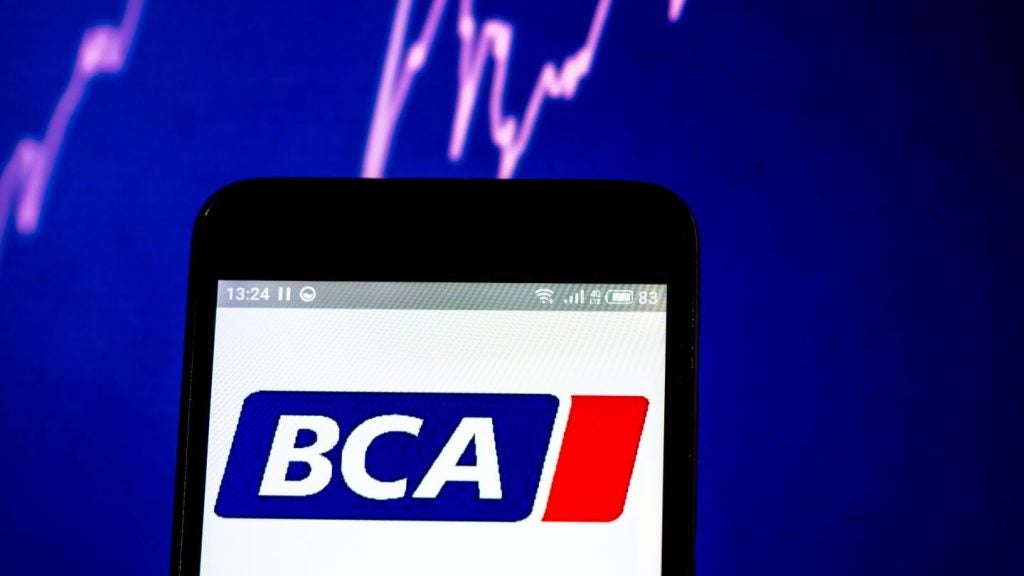
This year has been one of change in Motor Finance, both within the market it covers and on the editorial team. Brian Cantwell monitors the stories that produced the most traffic on www.motorfinanceonline.com.
1. Admiral enters motor finance market
In January, news broke that major insurer Admiral would enter the direct-to-consumer UK motor finance market, launching HP, PCP and personal loan products. Representative APR stood at 5.9% as it targeted the prime section of the market. As applications are made on Admiral’s website, the company will not charge commission. Admiral Loans said it also provides no-obligation quotes that will not impact consumer credit scores. Its HP product will offer loans of £2,900-25,000 for between 12 and 60 months, with Admiral paying the dealer directly following an online application. The PCP’s range is between £4,900 and £25,000, while the unsecured personal loan is between £1,000 and £25,000; the term lengths for both are also between 12 and 60 months.
2. RAC and Shawbrook launch Flexiloan motor finance product
Also in January, RAC, which provides breakdown cover among a raft of other services, launched Flexiloan, a non-secured balloon loan product, in partnership with Shawbrook Bank. Similar to PCP, Flexiloan customers pay a deposit, make monthly payments and end the agreement with a balloon payment. Unlike PCP, however, Flexiloan does not feature mileage limits, and the customer owns the car from day one. Available through RAC, customers are able to choose their deposit, monthly payments, the loan term (between 24 and 48 months) and balloon payment. Cars must be two years old and on sale in the UK in order to be eligible for the loan.
3. Group 1 Automotive acquires Robinsons Motor Group MercedesBenz franchises
In March, international retailer Group 1 Automotive acquired the Mercedes-Benz franchises of Robinsons Motor Group in a deal that saw it market the key premium brand in the UK for the first time. The deal was expected to add £180m in turnover, bringing Mercedes dealerships in Peterborough, King’s Lynn, Norwich, Cambridge and Bury St Edmunds to Group 1. The value of the deal was undisclosed.
4. Gumtree and eBay merge motor offering
In January, online storefronts Gumtree and eBay merged their motor offerings to enable dealers to reach both sites’ audiences with a single advert. Gumtree, which has been under eBay’s ownership since 2005, receives 6 million visits on its motoring section each month, while eBay records 3.7 million users each month viewing new cars on its site. Dealers listing on the joint platform will receive support including onboarding and regular reviews, vehicle history checks and all new showrooms for the eBay platform.
5. BMW UK partners with Drover for car subscription service
In April, BMW Group UK partnered with startup Drover to offer BMW and Mini cars on a monthly subscription basis. The product, offered through Drover’s website, bundles the cost of ownership – including taxes, servicing and insurance – into a single monthly payment, starting at £562 for a Mini Cooper three-door hatch. According to BMW, customers can swap vehicles, pause or end the subscription at any time, without long-term commitments. The partnership with Drover spun out of the 2016 Innovation Lab organised under the direction of BMW FS UK, which also led to commercial collaborations with analytics company Warwick Analytics and payments developer Divido.
How well do you really know your competitors?
Access the most comprehensive Company Profiles on the market, powered by GlobalData. Save hours of research. Gain competitive edge.

Thank you!
Your download email will arrive shortly
Not ready to buy yet? Download a free sample
We are confident about the unique quality of our Company Profiles. However, we want you to make the most beneficial decision for your business, so we offer a free sample that you can download by submitting the below form
By GlobalData6. BNP Paribas Personal Finance readies UK car finance product
In October, BNP Paribas Personal Finance UK announced that it was about to enter the car finance market, following a year-long recruitment effort that saw the lender onboard staff from the likes of Close Brothers, Barclays and Secure Trust Bank. The Solihull-based lender – the group’s main foothold in UK consumer finance –
announced through social media it would “bring our new [motor finance] solution to the UK very soon”.
7. MotoNovo to be integrated into Aldermore under latter’s CEO
In March, MotoNovo announced plans to move under the leadership of Aldermore chief executive officer Phillip Monks, as South African parent FirstRand looked to integrate the car finance lender into the newly-acquired challenger bank. FirstRand, which was awaiting shareholder and regulator approval on its £1.1bn bid for Aldermore at the time, said MotoNovo was currently “undiversified from a product and market perspective”. Consequently, the group was seeking to fund new MotoNovo business through Aldermore’s deposit base and securitisation operations. FirstRand added that, following the integration, liquidity from MotoNovo’s domestic balance sheet would be able to be redeployed in South Africa, where FirstRand also has a vehicle finance business.
8. Daimler’s Moovel opens market for bundled mobility passes
In September, Moovel, the navigation platform from Daimler Financial Services, launched a “marketplace” allowing transit authorities to bundle transportation services with third-party mobility offerings and integrate them into single-price passes. Moovel users will be able to book and pay for services through the app. Transport modes covered include bus and rail routes, as well as privately owned car-sharing, ride-hailing and bike-sharing services. Speaking at the InnoTrans 2018 trade conference in Berlin, Moovel chief executive officer Daniela Gerd tom Markotten said: “As a mobility-as-a-service pioneer, we are proud to be launching another digital innovation into the marketplace. The digital marketplace offers a range of advantages to cities and transit authorities, helping with the transformation into a mobility provider across all modes of transport.”
9. Broadhead retirement spurs Close Brothers management change
In April, Close Brothers Motor Finance appointed a chief executive officer following James Broadhead’s decision to retire. Rebecca McNeil was appointed to lead the team at Close Brothers, and joined the executive committee for the business’s banking division. McNeil was most recently chief operating officer for Barclays Business. Prior to this, she was managing director of lending for Barclays Corporate bank, providing financial products and services to support companies to grow and develop their businesses, from startups and small businesses through to global corporates.
10. TomTom telematics division considered for sale
In September, it emerged that TomTom’s telematics division was being prepared for a possible sale, in a bid to raise cash and to focus on its primary map and navigation software divisions. In a press release, TomTom said: “After several expressions of interest and following a diligent review during the summer, it has decided to explore strategic alternatives for its telematics business unit, which may result in a sale of the division.” Focusing on fleet connectivity and management, the TomTom telematics division was valued at €700m (£624m). Stock prices in the company rose by 17% to €7.25 on the news of the division’s potential sale. TomTom’s decision was supported by Barclays Investment Bank. The Netherlands-based company had been facing increasing pressure from Google’s maps division, which announced alliances with Renault, Nissan and Mitsubishi on 18 September. Speaking to Reuters on the threats of Google’s dominance in the car-mapping industry, TomTom chief executive Harold Goddijn said: “I’m confident the car industry will get together and say: ‘What’s going on here?’ The car industry is notorious for not allowing single-source components into its development chain.”
11. Santander launches ‘click-to-sign’ system across dealerships
In February, Santander Consumer Finance rolled out digital signature capabilities across its dealer network, following a test phase. The ‘i-click’ system, developed in conjunction with financial services software developer Dealflo, replaced the need for the signature pad device that customers previously had to use to sign digital copies of contracts. The new system, described by Santander as “click-to-sign”, is completely web browserbased, and does not require installation of additional software or hardware. The bank said that having streamlined the point-of-sale process, it would now focus on remote contract capabilities.
12. BoE’s Carney: motor debt not a significant risk to financial stability
Bank of England (BoE) governor Mark Carney said in January that the BoE was “comfortable” with banks’ exposure to motor finance, which he did not see as posing a risk to financial stability. Asked by the House of Commons’ Economic Affairs Committee for his view on the rapid growth in motor finance volumes, Carney said: “It’s something we have looked at, [as we will do with] any sector of financial services that is growing very rapidly.” However, Carney added that the risk posed to financial stability was more modest compared to other sectors for a number of reasons, including that motor finance debt still made up only a small proportion of overall household debt, the nature of PCP deals – with a bigger risk undertaken by the lender than the consumer – and captive finance companies already holding half of the market. Carney said: “If you [conduct a stress test] and, say, we have a recession and the value of the car is worth 20% less than the residual value that was in the contract, it works out to about six basis points, total capital being in the order of 16% [of exposure] at present.” Although Carney said it was important for regulators like the Financial Conduct Authority to keep an eye on the issue, he added: “From the Bank of England’s perspective, we looked at it, and we are quite comfortable from a financial stability perspective.”







